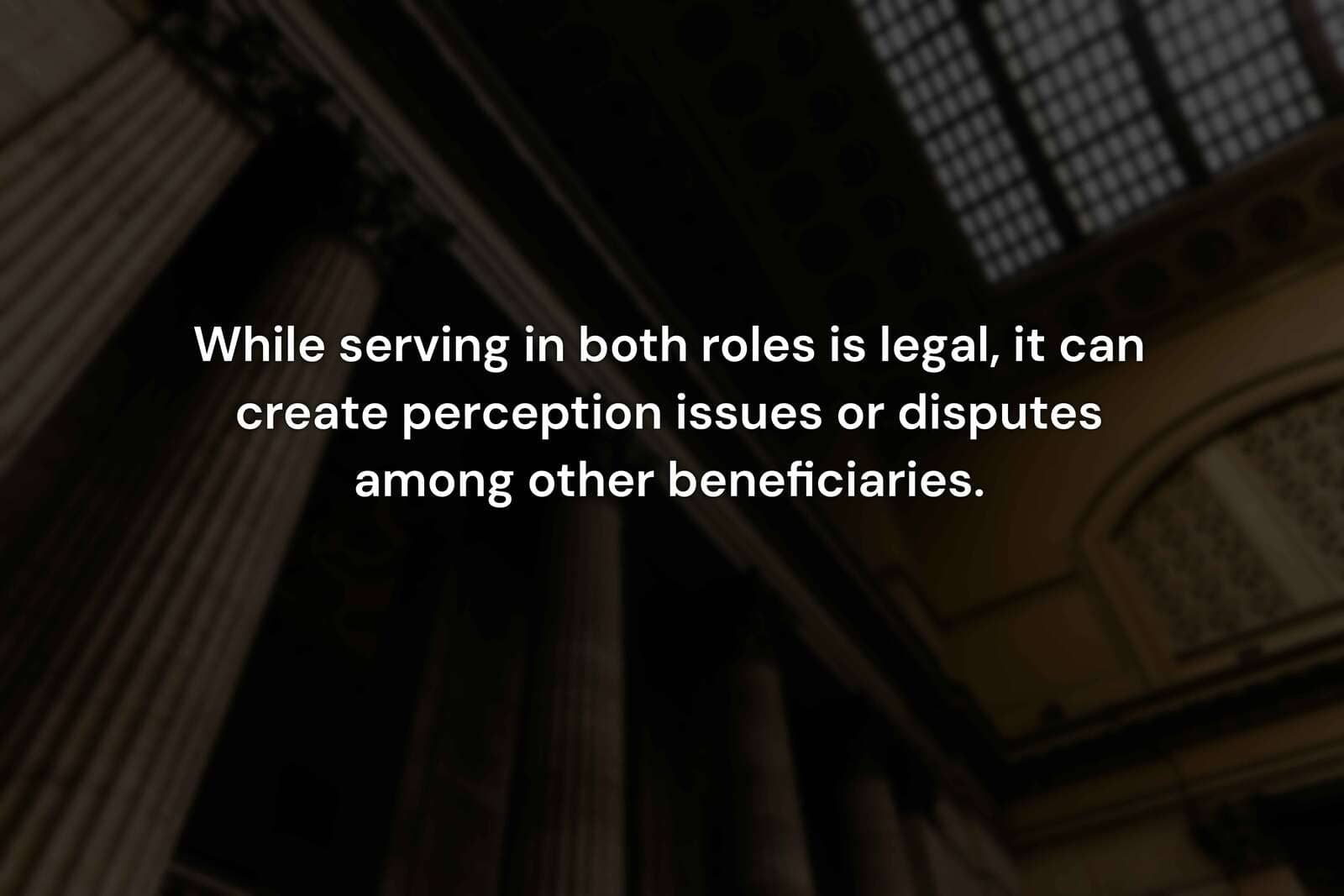An administrator of an estate can be a beneficiary if they are entitled to inherit under the will or state intestacy laws. Serving as both administrator and beneficiary is common, especially when a close family member is appointed to manage the estate. However, the dual role requires strict adherence to legal duties to avoid conflicts of interest.

Understanding the Administrator’s Role
The administrator is appointed by the probate court to handle all aspects of settling the estate. Their responsibilities include:
- Collecting and safeguarding assets
- Paying debts and taxes
- Distributing remaining assets to heirs or beneficiaries
- Filing required reports and accountings with the court
- While these duties are administrative, the administrator’s personal stake as a beneficiary adds another layer of complexity.
Why an Administrator Might Also Be a Beneficiary
In many estates, the surviving spouse, adult child, or close relative is both a logical choice to manage the estate and a primary heir. The court often appoints such individuals because they are familiar with the deceased’s assets and wishes.

Legal Requirements for Dual Roles
State laws permit an administrator to be a beneficiary as long as they:
- Follow the will or intestacy statutes for asset distribution
- Maintain detailed, transparent records
- Avoid self-dealing or using their position for personal gain beyond their legal share
Potential Conflicts of Interest
While serving in both roles is legal, it can create perception issues or disputes among other beneficiaries. Common points of tension include:
- The administrator prioritizing their own inheritance over others
- Disagreements about asset valuations or sales
- Concerns about delays in distribution

How to Prevent Disputes
An administrator who is also a beneficiary should:
- Communicate regularly with all beneficiaries
- Provide detailed written accountings of all transactions
- Use independent appraisers for asset valuations
- Seek court approval for major decisions involving estate property
The Court’s Oversight
The probate court monitors the administrator’s actions to ensure compliance with legal obligations. Beneficiaries can request accountings, challenge decisions, and file formal objections if they suspect misconduct.
Examples of Acceptable and Unacceptable Actions
Acceptable:
- Distributing assets according to the will’s terms, even if it means the administrator receives a smaller share than expected
- Selling an estate property for fair market value to an unrelated buyer
- Unacceptable:
- Selling estate property to themselves at below-market value
- Withholding distributions without legal justification
Why Legal Guidance is Crucial
A qualified estate planning attorney can help administrators navigate potential conflicts, ensure legal compliance, and document all actions to protect against disputes.
Additional Insights on Estate Administration
Can an Administrator of an Estate Take Everything?
No—administrators must follow the law and cannot use their position to claim more than their legal share.
How to Become Administrator of Estate
Becoming an administrator involves petitioning the court, meeting eligibility requirements, and taking an oath to fulfill legal duties.
What Does the Administrator of an Estate Do?
Their core tasks include managing assets, paying debts, and distributing property according to the will or state law.
How to File for Estate Administrator
This process requires court filings, notifying heirs, and obtaining formal approval before acting on behalf of the estate.











